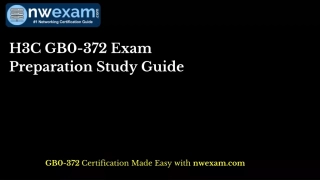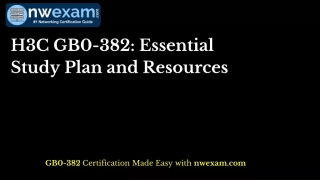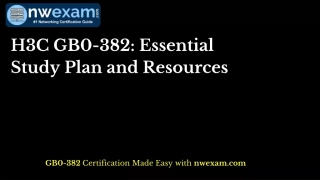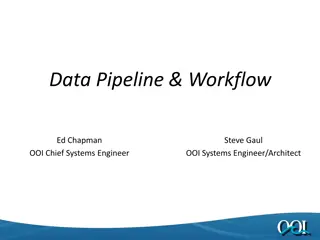A Guide to Being a Unit Engineer in an Ethylbenzene Unit
Dive into the world of unit engineering in an Ethylbenzene Unit with tasks like making rate changes, problem-solving, coordinating projects, communicating with various stakeholders, and more. Learn about the equipment, raw materials, and processes involved, and understand the impact of your unit's operations on others. Find tips for your first week, from reading manuals to meeting operators, and stay on top of daily monitoring tasks.
Download Presentation

Please find below an Image/Link to download the presentation.
The content on the website is provided AS IS for your information and personal use only. It may not be sold, licensed, or shared on other websites without obtaining consent from the author.If you encounter any issues during the download, it is possible that the publisher has removed the file from their server.
You are allowed to download the files provided on this website for personal or commercial use, subject to the condition that they are used lawfully. All files are the property of their respective owners.
The content on the website is provided AS IS for your information and personal use only. It may not be sold, licensed, or shared on other websites without obtaining consent from the author.
E N D
Presentation Transcript
What the heck does a unit engineer do By Victoria Simon
First, what even is a unit engineer You re now responsible for a unit This includes: Making rate changes Day to day problems Projects within the unit Optimization Coordinating between other unit engineers Communicating with logistics, operators and everything in between Attending meetings.. LOTS of meetings Now let s see which unit you ve been assigned
Congrats! It s an Ethylbenzene Unit!
Now what? Now you need to learn your equipment and process What are your raw materials, products, byproducts, major pieces of equipment? Raw Materials Alkylation Unit Distillation Unit Product Storage Benzene Ethylene Main Reactor Transalkylator Benzene Recovery Ethylbenzene Recovery PEB Recovery Ethylbenzene PEB residue Toluene
Benzene & ethylene Benzene Benzene Ethylbenzene Polyethylbenzene Ethylbenzene Ethylbenzene + heavies Polyethylbenzene + heavies Polyethylbenzene residue Ethylbenzene
**Important** What goes on in your unit affects the unit before and after yours. Be sure to communicate and consult with the other unit engineers when making decisions Styrene Unit EB Unit
Tips for the 1st week: Read operator training manuals Ask for a unit walkthrough/plant tour Go out and meet the operators in control room Keep a little notebook on hand for notes Draw out the process including major equipment You can go more in depth as you learn more, adding pumps, control valves, condenser drums, etc I ve made a huge mistake
7:00am Lets start the day Monitor trends Flowrates, temperatures, pressures Is anything out of the ordinary Storage capacity Raw material on hand Conversion percentages Did operations make any changes? Why?
Troubleshooting High Conversion Problem: Operations is calculating a conversion rate of 85% in the reactor when normally the target is 50% Question: Why is high conversion a problem in the reactor?
In sample Troubleshooting High Conversion ??? ?? 100 ????? ???? = mass flow Reactor ~50% conversion ??? ??? 100 ?????? ???? = mass flow ?????????? % =????? ???? ?????? ???? 100 ????? ???? Out sample
8:30am Morning Operations Meeting Lead by Shift Supervisor Unit Engineers report on behalf of their unit Updates, questions, upcoming work, meetings to be scheduled and discussed later, rate changes Chance to ask why changes were made during the night shift Opportunity for operations to get on the same page with everything going on for that day
9:30am Safety Meeting Monthly safety meeting over varying topics each time Hurricane preparedness, heat exhaustion, etc Other possible meetings include: Incident Investigations Procedure Reviews Root Cause Analysis Criticality Meetings Logistics Meetings PHA Process Hazard Analysis
10:00am Call from Logistics Problem: You were expecting a benzene barge to arrive tomorrow Logistics calls and informs you the ship won t arrive as scheduled Question: How does this impact your unit? What do you do next?
Benzene & ethylene Benzene Benzene Ethylbenzene Polyethylbenzene Ethylbenzene Ethylbenzene + heavies Polyethylbenzene + heavies Polyethylbenzene residue Ethylbenzene
12:00pm Lunch Meeting RCA Root Cause Analysis Normally for major events Must collect all important information and create timeline for management Investigate and discuss with operations to determine the root cause that set off chain of events to lead to incident Recommendations must be made to avoid this from happening in the future
2:00pm Some time to work on projects MOC- management of change Adding a valve in some piping Adding medium priority alarms in DCS Communicating with Vendors or other Engineers Reply to emails, schedule meetings, gather needed information Other responsibilities within unit: Monitor catalyst PTRs
420F TIC Monitor Catalyst PTRs Question: What is an example of a catalyst poison? This will vary between catalyst Reactor TW4 If Catalyst is nearing end of life: Helps determined change out dates As the temperature delta across bed decreased, the reaction activity decreased No change in temperature indicated the catalyst was deactivated TW3 TW2 TW1 6% % t??? ???? =?? ???? ??????? ????? ???? ?????? ???? ????? ???? 100 TIC 410 F Calculation example: Inlet temp = 410 F Outlet temp = 420 F TW #4 = 415 F 415 410 420 410 x 100 = 50% Ethylene + Benzene
2:15 pm Heater tripped Suit up and run out to the unit Sit quietly and let operators handle restarting heater Be available in case operations has any questions Great learning opportunity After: Once restarted, an incident investigation will be required and a recommendation given to avoid this from happening in the future
3:30 Okay back to projects Given a new project: temperature transmitter on flare broke. Must calculate emission to ensure there wasn t an exceedance
Calculating Flare Emissions DCS was unable to calculate the molar flow and use to convert volumetric flow to mass flow Had to calculate BZ and VOC flowrates ensure emissions were not exceeded Total molecular weight = ??? ????% of a + ??? ????% ?? ? + .+ (??? ???? % ?? ?) Weight % of x =???? % ?? ? ????????? ???? ? ?? ? ????? ????????? ???? ? ??????=?? ??????= ??????(???????) ??
4:20pm Leak at the Transalkylator Run back out to the unit and assist operations Source of leak must be determined Emergency meeting is called with operations to discuss potential solutions and path moving forward
Tips on taking advantage of free time: Talk to operators Get to know them, you ll be working very closely with them They know their unit Continue learning about your unit Work on adding control valves, pumps and other pieces of equipment to your PFD Learn about utilities and units connected to yours How does what you do in your unit impact others?























